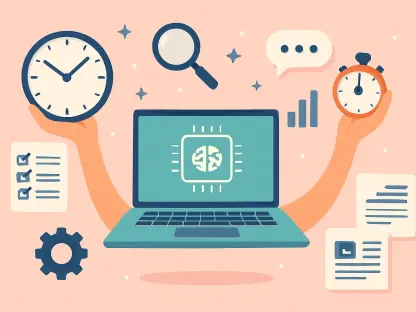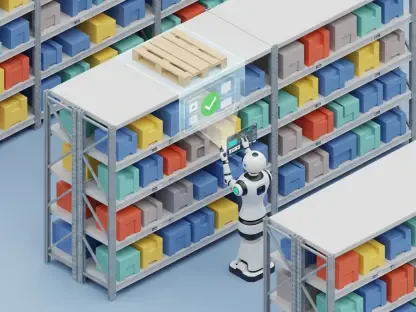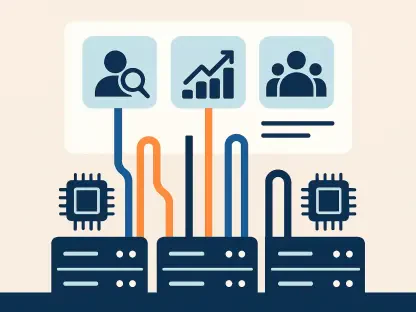With decades of experience in strategic business management and operations, Marco Gaietti joins us to share his insights into the rapidly changing world of HR technology and its broader implications for business leadership. As HR Tech 2025 approaches, new ideas and collaborations are shaping the future of workplaces. Let’s delve into these themes with Marco, who brings a wealth of executive leadership experience to our conversation.
How has your extensive experience in business management informed your perspective on the evolving landscape of HR technology?
My background has always reinforced the importance of aligning business strategies with technological advancements. The HR tech landscape is continuously shifting, much like any business environment. The key challenge is ensuring that technology serves to enhance HR functions, streamlining processes, and creating more value for employees and the organization. My management experience helps me understand how crucial it is to integrate these technologies seamlessly into the overall business strategy.
In what ways do you believe storytelling can be a powerful tool for HR leaders, especially in adapting to new technologies?
Storytelling is fundamental in bridging the gap between technological innovations and human experience. It’s through storytelling that HR leaders can convey the potential of these technologies and inspire their teams to embrace change. James Patterson’s ability to engage and communicate effectively through storytelling is a great example. HR leaders can leverage similar narrative techniques to articulate visions for the future and persuade stakeholders of the benefits of cutting-edge technologies.
What are some critical insights or methods from disruptive leadership that you believe will have a lasting impact on HR professionals?
The concept of disruptive leadership is about challenging the status quo and thinking outside the box. HR professionals can benefit from these insights by developing agility and resilience in their teams. Emphasizing innovation and proactive problem-solving allows HR to respond to market changes swiftly and effectively. It encourages a culture where continuous learning and adaptability become second nature, which is essential in today’s fast-paced work environment.
Can you share your thoughts on the significance of open interactions between thought leaders and HR professionals, such as the opportunity at HR Tech 2025?
These interactions are invaluable. They provide a platform for exchanging ideas, experiences, and challenges faced in the industry. It’s significant because it fosters a community where learning from one another is encouraged. Events like HR Tech 2025 allow HR professionals to connect directly with thought leaders, leading to mutually beneficial discussions and potential innovations. Such engagements keep everyone abreast of the latest trends and strategies.
How do you see collaborations like the one between Carta and Sequoia shaping compensation strategies in businesses?
Partnerships like these are crucial for creating sophisticated compensation strategies that are both fair and competitive. By leveraging the combined expertise of Carta and Sequoia, businesses can access comprehensive market insights and advisory services, helping them craft compensation packages that attract and retain top talent. It addresses pay equity, which is increasingly important for employees and employers, ensuring transparency and trust within the organization.
What role do you believe ethical training should play in the oversight of AI technologies within organizations?
Ethical training is fundamental as AI technologies become an integral part of business operations. Without a strong ethical foundation, organizations risk misuse of AI, which can lead to compliance issues and undermine employee trust. Formal ethical training ensures that those overseeing AI deployments understand how to use these technologies responsibly, respecting privacy and fairness. It is about creating guidelines that align AI outcomes with organizational values and societal expectations.
In your opinion, how does the advancement of free training initiatives like AWS Skill Builder impact the future workforce?
Such initiatives democratize access to essential skills in growing fields like cloud computing, data, and cybersecurity. By offering free training, AWS empowers individuals who might not have had the resources otherwise, effectively broadening the talent pool. This has a profound impact, not only on individual career prospects but also on the capabilities of the workforce at large. It enables organizations to tap into a more diverse and skilled workforce, which is vital for innovation and staying competitive.
Do you have any advice for our readers as they navigate the rapidly evolving HR tech space?
My advice would be to stay curious and open to change. The HR tech landscape is evolving at an unprecedented pace, and the willingness to learn and adapt is crucial. Embrace new technologies, but ensure they align with your organization’s values and objectives. It’s also vital to focus on building strong relationships within your team and encouraging a culture that thrives on innovation and continuous improvement. This prepares your organization to not just survive but thrive in the future of work.









